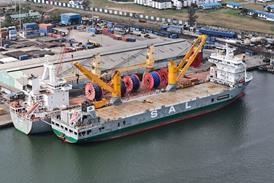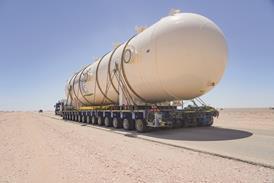Reaching net-zero carbon emissions for heavy industry and heavy-duty transport sectors is technically and financially possible by mid-century – 2050 in developed countries and 2060 in developing countries - according to the Energy Transitions Commission.

The report, Mission Possible: Reaching net-zero carbon emissions from harder-to-abate sectors by mid-century, outlines the possible routes to fully decarbonise cement, steel, plastics, trucking, shipping and aviation. Together these industries represent 30 percent of energy emissions today and could increase to 60 percent by mid-century as other sectors lower their emissions, said ETC.
The report was developed with contributions from over 200 industry experts over a six-month consultation process. Its findings show that full decarbonisation is technically feasible with technologies that already exist, although several still need further investment to reach commercial readiness.
In heavy-duty transport, electric trucks and buses (powered by either battery or hydrogen fuel cells) are likely to become cost-competitive by 2030, said the report.
The report added that, in shipping and aviation, liquid fuels are likely to remain the preferred option for long distances but carbon emissions can be reduced by using bio or synthetic fuels.
Improved energy efficiency, greater logistics efficiency and some level of modal shift for both freight and passenger transport could also reduce the size of the transition challenge.
The report outlined key policies to accelerate the decarbonisation of these sectors, including tightening carbon intensity mandates on industrial processes and heavy-duty transport; accelerating public-private collaboration to build the necessary energy and transport infrastructure; and investing in the green industry through research and development.
















